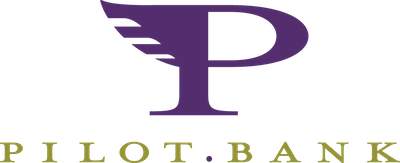
Pilot Bank Hosts Security Awareness Virtual Event
Pilot Bank hosted a virtual event to discuss the increase in online threats that many people are facing during this time of digital age. Throughout the worldwide pandemic many scam artists have progressed in taking advantage of the technology-based world most people live in. This event discussed common scams, COVID-19 related fraud, online security threats, and how to properly protect yourself against these threats.
Common scams that many people are receiving include gift card scams. This normally involves a certain prize the victim won or sweepstakes. These scams will request the payment in popular forms of gift cards such as Amazon, iTunes, or Visa/Mastercard. Once the information is completed the fraudster will have access to the money that was placed on the gift card. Many scams similar to gift cards (claim from IRS, collecting back taxes) usually involve a form of urgency. For example, if it is a scam it may say “you owe the IRS and everything needs to be paid right here, right now.” It is important to remember that a common theme with these scams is a sense of urgency.
Unfortunately, even throughout a pandemic there are a lot of people who will capitalize on taking advantages of others. Many of these fraudsters use COVID-19 as a way to gather important information and steal from others. COVID-19 related fraud includes fake Clorox and Lysol websites where imposters are trying to get users to purchase the fake products in order to obtain their money. Fake COVID-19 clinical trials are also part of this fraud, where imposters pretend to host trials and offer medical treatment in hope to receive personal information and payment. When coming in contact with COVID-19 trials, stimulus payment, or cure/vaccine treatments it is important to ask many questions because most of the time if it is a scam, many of these fraudsters will not be able to answer your questions.
Common examples of online security threats include phishing emails, spoofing, social engineering, and financial scams. Phishing emails are scam emails that are made to look like it came from a legitimate business in order to steal sensitive information (social security number, bank account passwords, credit card numbers). Email spoofing involves a forged email header where cybercriminals attempt to gain sensitive information. This forged email can be sent from a person, organization, or institution. With the increase of social media use it has become very easy for fraudsters to steal personal information from social media profiles. This can lead to a damaged reputation and stealing of credentials. Financial scams are most commonly found on social media sites (Twitter, Facebook, Instagram) and include easy money schemes and giveaways, tech support, and fake employment opportunities.
In order to protect yourself from fraud and scams DO NOT send money or give out personal information in response to an unexpected request. This can be through a text, phone call, or email. Many scam numbers have been reported via Google or Bing, so be sure to research an unknown phone number before moving forward. If you receive a request for an upfront payment it is most likely a scam and should not receive a response. When receiving an email from a bank or business with a link be sure to contact the business directly and avoid clicking the link until you confirm it is not fraud. Ask questions! DO NOT let someone rush you into making a payment or donation without all the facts.
To report an internet related scam, visit ftc.gov/complaint or by calling 1-877-382-4357. For online scams you can also visit ic3.gov or econsumer.gov. Social security scams can be reported to ssa.gov or by calling 1-800-269-0271. IRS related scams can be reported via treasury.gov or by calling 1-800-366-4484.
Pilot Bank is a full-service bank providing retail and commercial services to individuals, businesses, and institutions serving the greater Tampa Bay and Lakeland for over 33 years. There are six banking center locations throughout the region, please visit www.Pilot.Bank for more information. Pilot Bank is “In the Business of Community”
Categorized in: Work
This post was written by Elevate, Inc.




Comments are closed here.